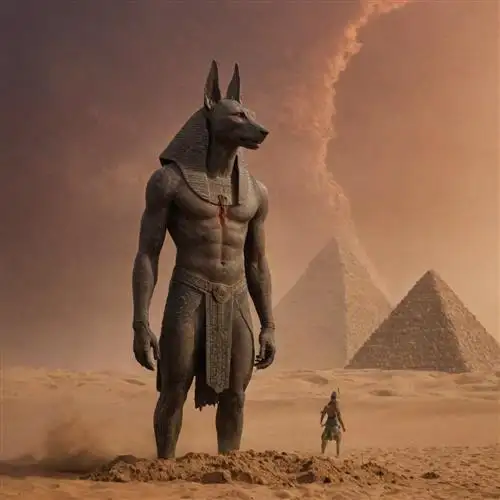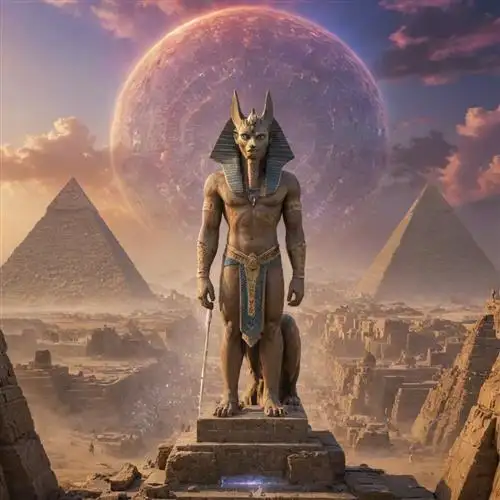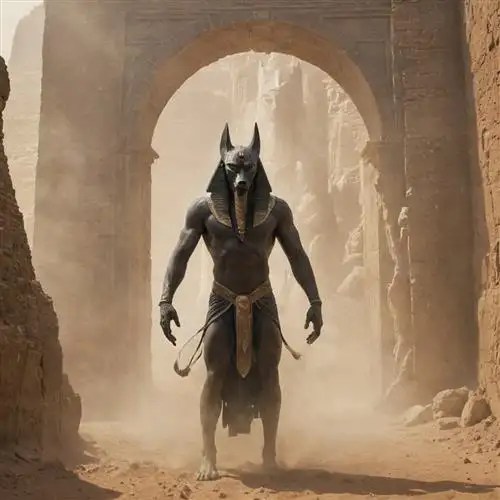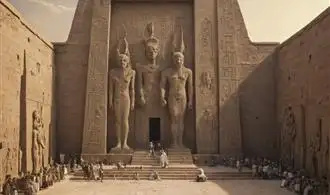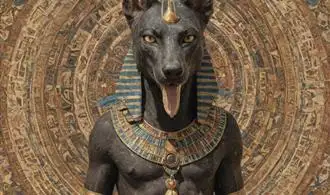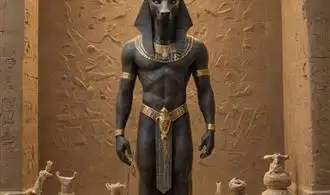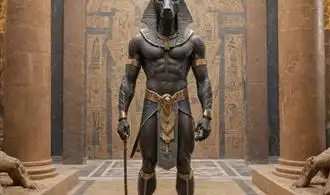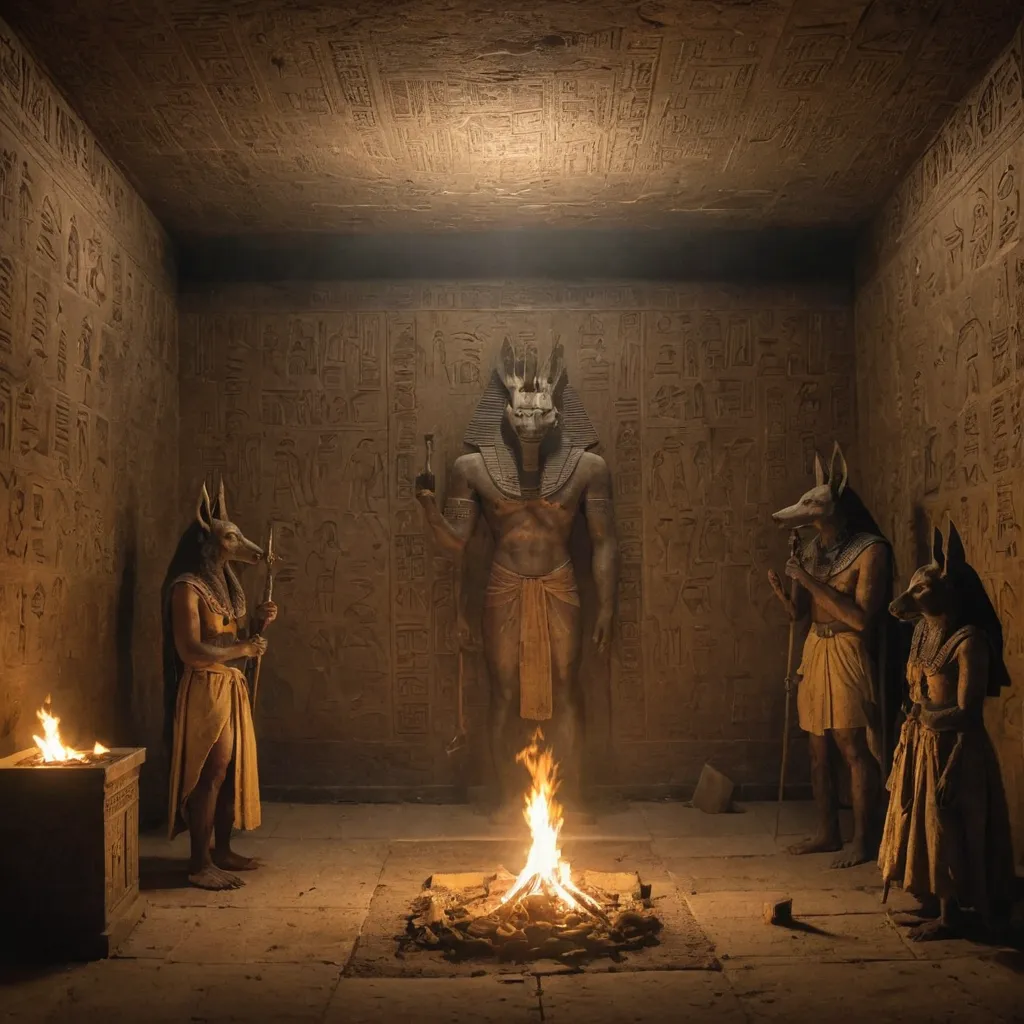
The Surprising Role of Anubis in Ancient Egyptian Mythology
Anubis, the enigmatic jackal-headed deity, played a pivotal role in the intricate tapestry of ancient Egyptian mythology. As the god associated with mummification, the afterlife, and the protection of the dead, Anubis' influence extended far beyond the realms of funerary rites and rituals. Contrary to popular belief, this esteemed figure held a surprising array of responsibilities and symbolic meanings within the ancient Egyptian pantheon.
One of the most significant and often overlooked aspects of Anubis' role was his function as a mediator between the world of the living and the realm of the dead. As the guardian of the necropolis and the embalming process, Anubis was entrusted with the critical task of ensuring a smooth transition for the deceased into the afterlife. This intermediary position allowed Anubis to serve as a bridge, connecting the earthly and the divine, and granting him a unique perspective on the cycle of life and death.
Anubis' influence also extended into the realm of judgement and the weighing of the heart. During the famous "Weighing of the Heart" ceremony, Anubis would preside over the process, ensuring the deceased individual's heart was balanced against the feather of Ma'at, the goddess of truth and justice. This solemn ritual not only determined the fate of the soul but also served as a testament to Anubis' role as a guardian of moral and ethical standards in the afterlife.
Furthermore, Anubis was closely associated with the mummification process, a practice that was integral to the ancient Egyptian belief in the preservation of the physical body for the afterlife. As the one who "opened the mouth" of the deceased, Anubis played a crucial role in the ritual revitalization of the body, allowing the soul to reconnect with the physical form and ensuring a successful transition to the next life.
Anubis Mysteries Buried in the Sands of Time
Anubis, the jackal-headed Egyptian deity, has long been shrouded in mystery and intrigue. While the ancient Egyptians revered him as the god of embalming and the afterlife, there are fascinating truths about Anubis that have been buried in the sands of time. Uncover the secrets Anubis may not want you to know.
One of the most intriguing aspects of Anubis is his association with the embalming process. As the god responsible for overseeing the mummification of the deceased, Anubis held a crucial role in the transition from life to the afterlife. However, recent archaeological discoveries have shed light on the more gruesome and macabre details of this process. Researchers have uncovered evidence suggesting that the embalmers, under Anubis's watchful eye, would sometimes remove the brains of the deceased through the nose, a practice that was likely both painful and traumatic for the departed.
Beyond the embalming rituals, Anubis's influence extended into the realm of the afterlife. The ancient Egyptians believed that Anubis would weigh the heart of the deceased against the feather of truth, determining whether the individual was worthy of eternal life in the afterworld. This "weighing of the heart" ceremony was a pivotal moment in the journey of the soul, and Anubis's role as the judge and gatekeeper of the afterlife was paramount. However, scholars have uncovered evidence suggesting that this process was not always as straightforward as the myths portrayed. In some cases, the heart of the deceased was found to have been deliberately removed or altered, raising questions about the accuracy and impartiality of Anubis's judgment.
Another surprising truth about Anubis is his connection to the darker aspects of the ancient Egyptian pantheon. While he was often depicted as a protector and guide for the dead, Anubis was also associated with the more sinister and dangerous elements of the afterlife. Some scholars believe that Anubis may have been linked to the shadowy figure of Ammit, the "Devourer of Souls," who was responsible for consuming the hearts of the unworthy. This association with the more ominous aspects of the afterlife suggests that Anubis's role was not always one of benevolence and guidance, but also one of power, control, and even judgment over the souls of the departed.
Anubis Reveals the Unexpected Truths of the Afterlife
Contrary to popular belief, the Egyptian god Anubis does not simply preside over the process of mummification and the judgment of the dead. His role in the afterlife is far more complex and nuanced than many realize. Through ancient texts and the insights of modern scholars, we can uncover the surprising truths that Anubis wishes to impart to the living.
One of the primary misconceptions about Anubis is that he is solely a god of death. While it is true that he is closely associated with the process of mummification and the transition from life to the afterlife, his influence extends far beyond the physical realm. Anubis is also a guide, a protector, and a repository of ancient wisdom that can shed light on the mysteries of the afterlife.
Contrary to the common depiction of Anubis as a stern and unyielding figure, the god is often portrayed as a compassionate and nurturing presence in the afterlife. He is believed to offer comfort and support to the deceased, guiding them through the challenges of the journey to the underworld and ensuring their successful transition to the next phase of existence.
One of the most intriguing aspects of Anubis' role in the afterlife is his connection to the concept of the "duat," the Egyptian underworld. Rather than a simple binary of heaven and hell, the duat is a complex and multifaceted realm that encompasses a range of experiences and states of being. Anubis is believed to be a master of this realm, possessing a deep understanding of its intricate workings and the various challenges and opportunities that the deceased may encounter.
Through his guidance, Anubis is said to help the deceased navigate the duat, assisting them in overcoming obstacles, facing their judgments, and ultimately achieving a state of eternal peace and harmony. This process is not a one-size-fits-all experience, but rather a highly personalized and intricate journey that Anubis tailors to the unique needs and circumstances of each individual.
Another surprising truth that Anubis wishes to impart is the concept of the "second life." In ancient Egyptian belief, the afterlife was not seen as a static or permanent state, but rather a dynamic and ever-evolving journey. Anubis is believed to play a crucial role in this process, guiding the deceased through a series of transformations and reincarnations that ultimately lead to a state of enlightenment and spiritual fulfillment.
This belief in the "second life" challenges the common Western notion of a singular, eternal afterlife. Instead, it suggests a more fluid and cyclical understanding of existence, where the deceased are afforded the opportunity to continue their spiritual growth and development through multiple incarnations within the duat.
The Forgotten Rituals and Ceremonies of Anubis
Anubis, the Egyptian god of the dead, has long been a figure of fascination and reverence. Yet, many of the intricate rituals and ceremonies associated with this powerful deity have faded from public knowledge. Dive into the depths of these forgotten practices and uncover the profound significance they hold in the ancient Egyptian worldview.
At the heart of Anubis' cult were the rituals performed during the mummification process. As the god who presided over the embalming of the dead, Anubis played a critical role in the journey of the deceased into the afterlife. The embalmers would invoke Anubis' protection and guidance as they carefully prepared the body, removing the internal organs and preserving the remains. This sacred rite was believed to ensure the safe passage of the soul to the realm of the dead.
Beyond the mummification rituals, the ancient Egyptians also conducted ceremonies to honor Anubis on specific occasions. One such event was the Festival of Sokar, a celebration that occurred during the winter solstice. During this time, the priests would carry a statue of Anubis in a sacred procession, symbolizing the god's role as a guide for the dead as they traversed the underworld. The ceremonies would often include offerings, prayers, and rituals aimed at invoking Anubis' protection and favor.
Another lesser-known ceremony was the "Weighing of the Heart" ritual, which took place during the final judgment of the deceased. In this solemn rite, the heart of the dead was weighed against the feather of Ma'at, the goddess of truth and justice. Anubis, as the god of the dead, would oversee this crucial moment, ensuring the deceased had lived a righteous life and could thus proceed to the afterlife. The outcome of this ritual was believed to determine the fate of the soul.
Alongside these formal ceremonies, the ancient Egyptians also incorporated Anubis into their daily lives through more personal rituals. Individuals might leave offerings at shrines dedicated to the god, seeking his guidance and protection in their daily affairs. The imagery of Anubis, with his distinctive jackal-headed form, was also widely used in amulets, talismans, and other objects of spiritual significance.

